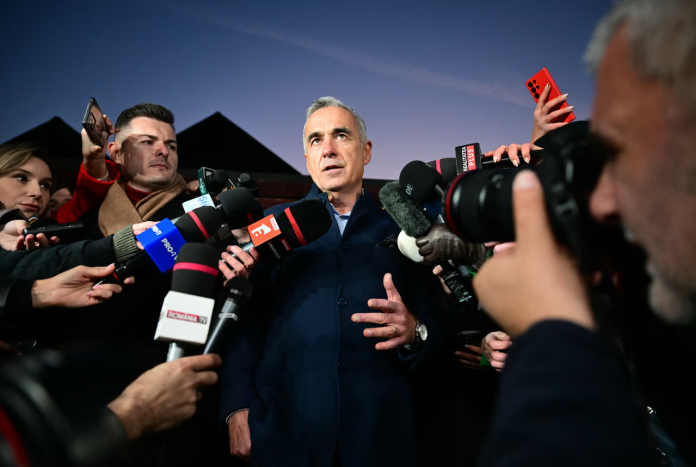Several Romanian non-governmental organisations (NGOs) called on the European Commission and ANCOM to investigate how major online platforms complied with the Digital Services Act (DSA) during the first round of Romania’s presidential election.
The Association for Technology and the Internet (ApTI) and 15 other NGOs sent an open letter on Wednesday. They called on the Commission and ANCOM, the regulatory body that also oversees the implementation of the DSA at the national level, to investigate measures taken by major online platforms to mitigate risks associated with the electoral process.
Moreover, the National Broadcasting Council (CNA) requested the European Commission to formally investigate TikTok on Tuesday. The CNA suggested that TikTok violated standards by authorising political advertisements for independent candidate Călin Georgescu.
Valentin Jucan, vice president of CNA, stated that TikTok failed to ensure transparency of algorithms and mitigate systemic risks as required by the DSA. CNA also called on TikTok to publish a detailed assessment of the democratic risks associated with its activities in Romania. According to the Expert Forum report, Georgescu’s voter support increased from 2% to 22% during the campaign period, mainly due to TikTok’s campaigns.
TikTok’s impact on elections
These campaigns reportedly included coordinated accounts promoting content without proper labelling, artificially amplifying messages through algorithms and hashtags that garnered millions of views. Such activity raised concerns about the manipulation of public opinion and the lack of transparency in TikTok’s handling of political content.
President Klaus Iohannis called a meeting of the Supreme National Defence Council for Thursday to discuss “potential national security risks posed by actions of state and non-state cyber actors on IT&C infrastructures supporting the electoral process.” However, the presidential administration earlier said it had not received any information from state agencies about election meddling or external interference.
Dan Nica, leader of Romania’s S&D delegation, accused unnamed individuals of “brutally interfering” in the presidential election and called for immediate action. However, Green Party MEP Nicolae Ștefănuță recognised the platform’s popularity among Romania’s nine million users, admitting that “no politician can afford not to be where the people are.”
The unexpected success of Călin Georgescu, who garnered no more than 7% of the vote but came in first place without much visible campaigning, raised wider concerns.
